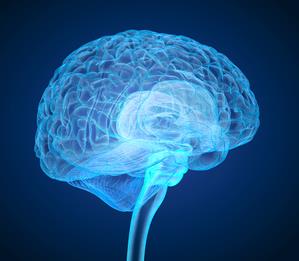
Scientists Decode Brain Activity That Can Help Treat Anxiety And Depression
In a new study by Chicago-based Northwestern Medicine in the US and published in the journal Science Advances, scientists sought to better understand how humans evolved to become so skilled at thinking about what's happening in other peoples' minds.
“We spend a lot of time wondering, 'What is that person feeling, thinking? Did I say something to upset them?'” said senior author Rodrigo Braga.
The parts of the brain that allow us to do this are in regions of the human brain that have expanded recently in our evolution, and that implies that it's a recently developed process.
“In essence, you're putting yourself in someone else's mind and making inferences about what that person is thinking when you cannot really know,” Braga added.
The study found the more recently evolved and advanced parts of the human brain that support social interactions - called the social cognitive network - are connected to and in constant communication with an ancient part of the brain called the amygdala.
Often referred to as our“lizard brain,” the amygdala typically is associated with detecting threats and processing fear.
“The amygdala is responsible for social behaviours like parenting, mating, aggression and the navigation of social-dominance hierarchies,” said Braga, adding that previous studies have found co-activation of the amygdala and social cognitive network, but“our study is novel because it shows the communication is always happening.”
Within the amygdala, there's a specific part called the medial nucleus that is very important for social behaviours.
This study was the first to show the amygdala's medial nucleus is connected to newly evolved social cognitive network regions, which are involved in thinking about other people.
This link to the amygdala helps shape the function of the social cognitive network by giving it access to the amygdala's role in processing emotionally important content, said scientists.
Both anxiety and depression involve amygdala hyperactivity, which can contribute to excessive emotional responses and impaired emotional regulation.
With this study's findings, a much less-invasive procedure, trans-cranial magnetic stimulation (TMS), might be able to use knowledge about this brain connection to improve treatment, the authors said.
-IANS
na/

Legal Disclaimer:
MENAFN provides the
information “as is” without warranty of any kind. We do not accept
any responsibility or liability for the accuracy, content, images,
videos, licenses, completeness, legality, or reliability of the information
contained in this article. If you have any complaints or copyright
issues related to this article, kindly contact the provider above.
Most popular stories
Market Research

- Zebu Live 2025 Welcomes Coinbase, Solana, And Other Leaders Together For UK's Biggest Web3 Summit
- Ozak AI Partners With Pyth Network To Deliver Real-Time Market Data Across 100+ Blockchains
- Solotto Launches As Solana's First-Ever Community-Powered On-Chain Lottery
- Stocktwits Launches Stocktoberfest With Graniteshares As Title Partner
- Casper (CSPR) Is Listed On Gate As Part Of Continued U.S. Market Expansion
- VUBE Exchange Announces Unified Account Integration Across VUBE Pro, VUBE Plus, And VUBE Max




















Comments
No comment